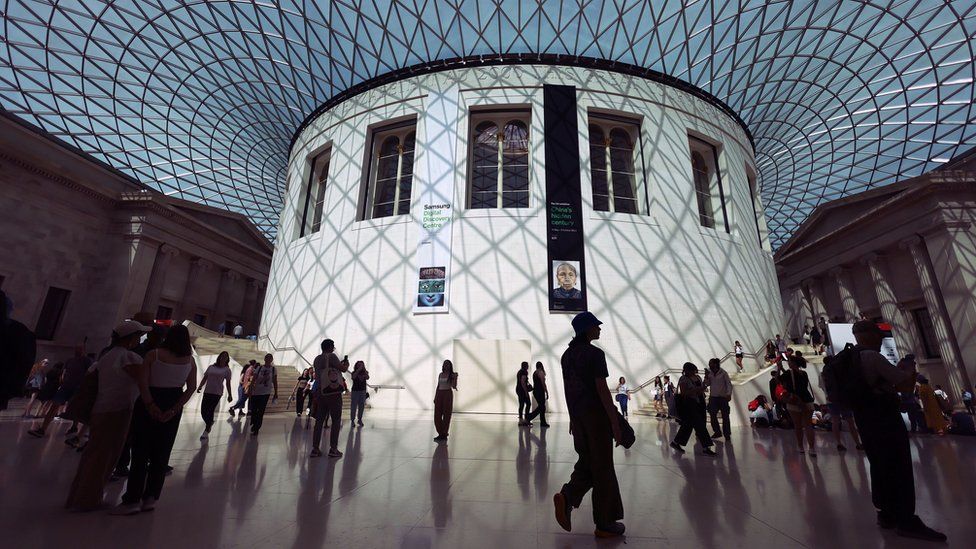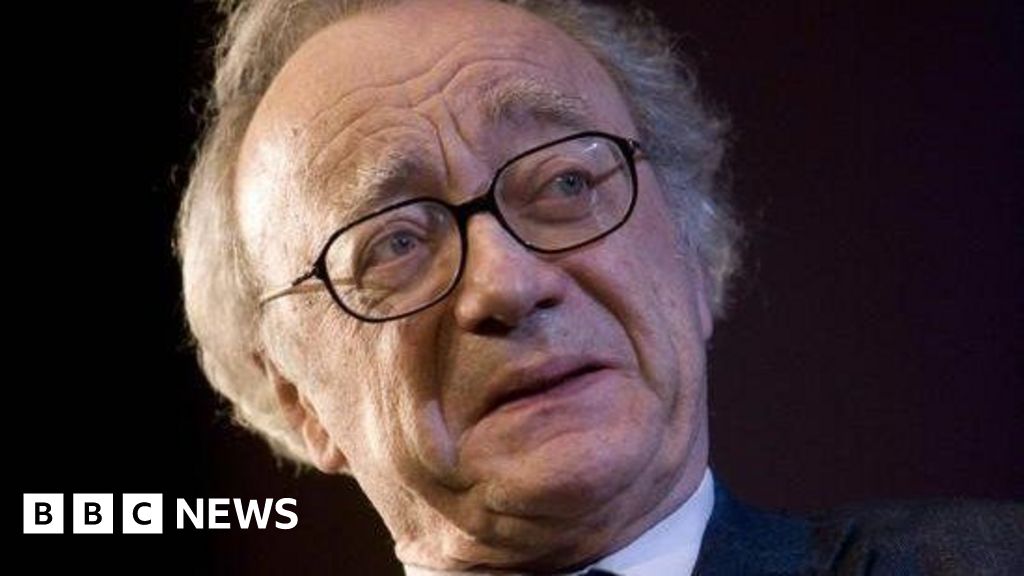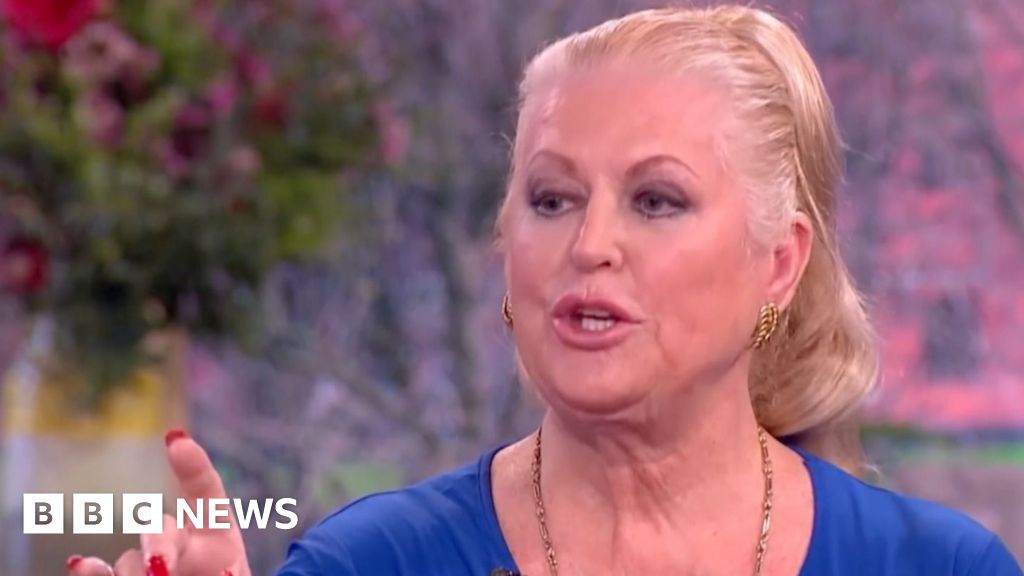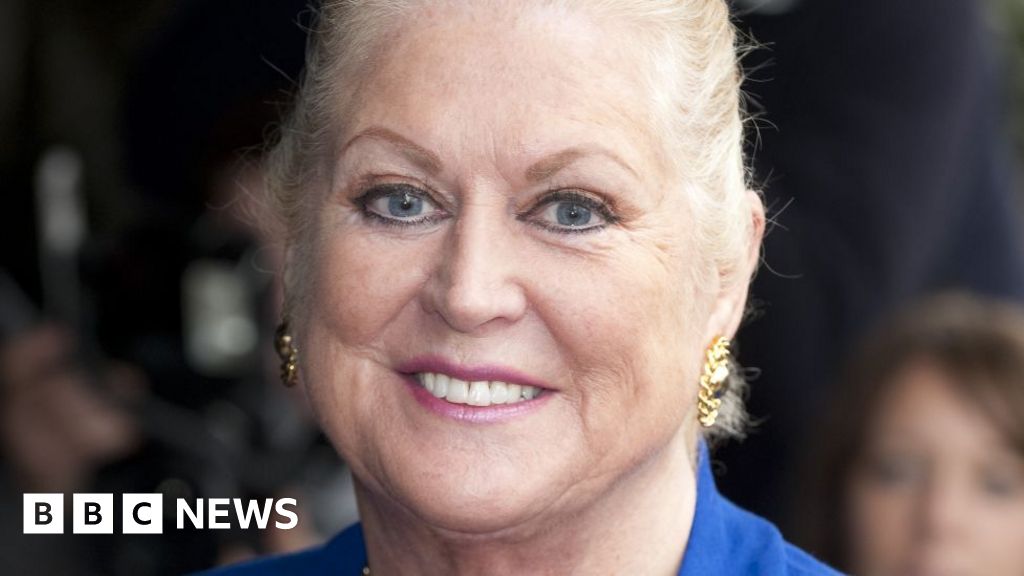ARTICLE AD BOX
 Image source, EPA-EFE/REX/Shutterstock
Image source, EPA-EFE/REX/Shutterstock
The British Museum's outgoing director Dr Hartwig Fischer acknowledged that "the situation facing the Museum is of the utmost seriousness"
By Katie Razzall
Culture and Media editor
The British Museum said the staff member they believe stole or damaged around 2,000 objects is not co-operating with their search for them.
A review into the thefts has now produced a series of recommendations to protect the collection, including identifying all unregistered artefacts.
Peter Higgs, who was a senior curator at the museum, is accused of stealing artefacts including Roman gems.
Mr Higgs has not responded to the BBC's attempts to contact him.
He has previously denied any wrongdoing.
His family told reporters in August that he was innocent and "devastated" to have lost his job.
The recommendations also include reviewing the approach to suspending employees, to give due weight to protecting the collection.
"One of the things that we've got to get to the bottom of is exactly the motivation of the individual who we believe is responsible," museum chairman George Osborne told the BBC. "But he has not been talking or co-operating."
One of the artefacts found to be up for sale on Ebay
An external review into what happened estimates that the alleged thief pocketed around £100,000 over a 30-year period, selling items from the museum storerooms.
Some of the artefacts - most of which were never catalogued by the museum - were sold on eBay for as little as a few pounds. The true value of the items is still unknown.
The independent review, conducted by former British Museum board member Sir Nigel Boardman, Chief Constable of British Transport Police Lucy D'Orsi, and Deputy High Court Judge Ian Karet, runs to 30 pages.
Only four pages - which contain its recommendations - have been made public. Mr Osborne says the museum can't share more due to security concerns and the ongoing police investigation.
All 36 recommendations contained in the review have been accepted by the Trustees.
They suggest making more frequent and more extensive inventory checks of all the collection including unregistered items and adopting a "modern and inclusive approach" to management.
More than a third of the published recommendations are already underway or completed, according to the museum.
'Inside job'
Mr Osborne said, "we were the victim of an inside job. We're determined to learn the lessons, make sure the collection is safe and be a more open, transparent and self-confident institution going forward".
Antiquities dealer Ittai Gradel first warned management that a thief was operating inside the museum in February 2021. He wrote to the British Museum's deputy director Jonathan Williams, alleging that he had seen three ancient artefacts belonging to the museum for sale on eBay.
He had found the full name and address of the suspect insider on a PayPal receipt for some gems he bought and included this in his evidence to Williams.
The museum admitted that an investigation prompted by Williams at the time was inadequate.
Mr Osborne, who is also chair of the museum's trustees, acknowledged the lapse over Dr Gradel's warnings, saying, "It was not taken as seriously as it should have been. And that's a big lesson for us to learn."
Later in 2021, an unconnected spot check revealed an item was missing and the museum began to uncover how many items had been taken or damaged.
The museum's director, Hartwig Fischer, stepped down immediately in August 2023 after the story broke.
The BBC understands that Mr Williams, who oversaw the museum's first failed investigation into the thefts, is still employed at the museum.
The British Museum told the BBC: "This is a confidential HR matter and we can't comment further."
£50 per gem
Dr Gradel has played a key role in the museum's recovery process which involves tracking down dealers and collectors from all over the world who may have bought stolen items.
Out of the 651 items identified by the museum so far, 351 have already been handed back.
And 350 of those have come from Dr Gradel, with just one returned by another buyer.
Dr Gradel told the BBC: "A few of them I bought individually but most of them came in batches of say 20, 30 or even 40, and they kept coming.
"If you add it all up, I paid maybe £50 per gem."
Many of the items were returned based on "circumstantial evidence" that they had come from the museum, Dr Gradel said, as the vast majority had not been catalogued.
The thief also damaged some of the objects, none of which were on display, according to the museum. Around 350 gold mounts were destroyed, possibly melted down to sell for scrap. Tool marks defaced 140 other items.
Mr Osborne admitted to security failings at the museum, acknowledging that rules were "not always properly enforced."
He said, "People get a bit lax in the way they follow those rules. And the review, therefore, recommends that the rules we have in place are properly followed."
The Metropolitan Police interviewed a man under caution in August. A police investigation is ongoing.

 1 year ago
39
1 year ago
39








 English (US) ·
English (US) ·